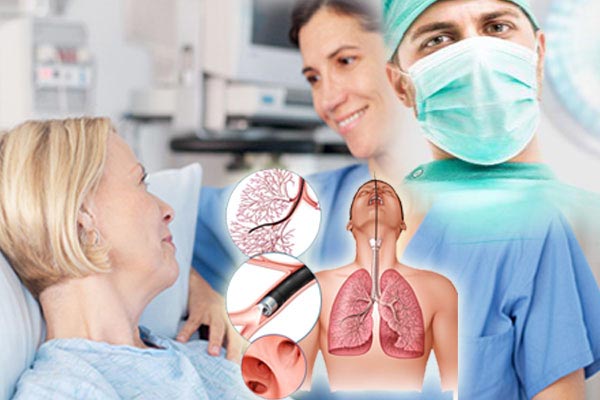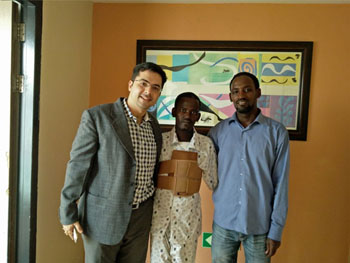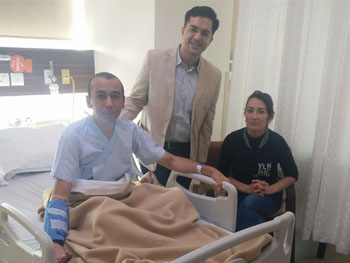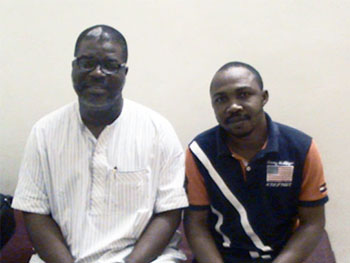Lung Transplant Low Cost Best Hospitals Top Surgeons India
Organ Donation – an overview

We keep hearing about Organ Transplant a lot. Today, organ donation provides hope to innumerable people around the globe. It is equal to is gifting the most priceless gift to another human being – a renewed life; considered to be the best legacy that we can leave behind us. It is surely a very difficult decision, but at the same time it’s a major leap of hope for patients with end-stage organ failure. But unfortunately, the number of people awaiting organ donation is always higher than the people willing to donate.
It is a known fact that our body as a whole depreciates during the lifetime. But sometimes it happens that diseases or genetics may attack and destroy one specific organ, while the remaining body remains comparatively healthier. A lot depends on which organ is wearing down. There are various life-sustaining treatment choices before transplantation, which can be helpful to improve the condition of that particular organ. For example, when it comes to kidneys, dialysis helps a person who has damaged kidneys. But, the rest of the body has to bear the brunt due to the side effects of the treatment. A person on dialysis faces a higher risk of cardiovascular disease because dialysis affects and brings down the amount of antioxidants that generally fight the toxins within our body.
Video - Lung Transplant Surgery in India
Types of organ donation
There are principally two types of organ donation – living donation and deceased donation.
- Living organ donation
Mostly organ and tissue donations are done after the donor has died or declared brain dead. But some organs and tissues can be donated while the donor is alive. Generally, living donations are done among family members or between close friends but there are some people who become altruistic living donors by choosing to donate to someone they don’t know.
Free Consultation
Unwinding the Tangles of Lost Hopes with a Flawless Lung Transplant Surgery

Aashna Pillai from Mumbai
One of the success stories of lung transplant in India is residing in the heart of the country, Mumbai. Being a working person and traveling long routes from one end of the city to another, the 46-year-old woman
Low cost Lung Transplant in India
Living donation is when someone donates a portion of their liver or one of their kidneys to a patient while the donor is still alive. Living donors can donate one kidney, a lung, or a portion of the liver, pancreas, or intestine. Although these organs do not regenerate but the portion that has been donated and the portion that is remaining with the donor are fully functioning. This offers an alternative for people waiting for a deceased donor, and it increases the number of organs available, saving more lives. Some of the tissues that can be donated by living donors are:
- Skin, after certain surgeries such as an Abdominoplasty
- Bone after knee and hip replacements
- Healthy cells from bone marrow and umbilical cord blood
- Amnion, donated after childbirth
- Blood, including white and red blood cells, platelets, and the serum that carries blood cells throughout the circulatory system
- Deceased organ donation
It must be kept in mind that, deceased donation is only possible after all attempts to save the patient’s life have been tried, and brain death has been declared. Even though the person, who is brain dead, is technically dead, but the organs would be still functioning and hence appropriate for organ donation. The donor’s organs are surgically retrieved and stored in special chemical solutions until there is a need for those organs for transplantation. Such a donor can donate kidneys, liver, lungs, heart, pancreas, and intestines. In 2014, hands and faces were added to the organ transplant list.
LUNG TRANSPLANT – AN OVERVIEW
Our lungs are one of the largest organs of our body, which are indispensable as they work on our respiratory system. These are a crucial part of the respiratory system, which consists of a group of organs and tissues that work in coordination to help us breathe. The respiratory system's primary function is to move fresh air into our body and removing the unwanted gases. Do you know that if the inner surface of the lungs could be flattened out, they would occupy an area almost equal to 80-100 square meters; that is about the size of half of a tennis court!
Why are Lungs so crucial?
Every cell in the human body needs oxygen in order to survive. The air that we breathe contains oxygen as well as other gases. Once these gases are in the lungs, oxygen is moved into the bloodstream and carried throughout your body. At each cell in the body, oxygen is exchanged for a waste gas called carbon dioxide. The bloodstream then carries this waste gas back to the lungs where it is filtered from the blood stream and then exhaled. This important process called as gas exchange is automatically performed by the lungs and the respiratory system.
In addition to this process, the respiratory system has other vital roles to play. These include:
- Bringing air to the proper body temperature and moisturizing it to the right humidity level.
- Protecting the human body from harmful substances. This is done by coughing, sneezing, filtering or swallowing them
- Supporting our sense of smell
A Lung Transplant in India is a surgery done to remove a diseased lung and replace it with a healthy lung from another person (donor). The surgery may be done for one lung or for both. This procedure can be performed on people belonging to almost all ages from newborns to adults up to age 65. Send us your query to know the Lung Transplant Cost in India.
Types of lung transplant procedures include:
- Single lung – This is the transplant of one lung
- Bilateral sequential – This is the transplant of both lungs, done one at a time. It’s also called bilateral single
- Heart-lung transplant – In this, organs for transplant of both lungs and the heart are taken from a single donor.
When is Lung Transplant needed?
Mostly, people with severe, end-stage lung disease can be considered for or recommended a lung transplant. The procedure should be considered when survival for someone a patient seems impossible without the surgery and no other treatment options are available. A Lung Transplant can also be considered for people whose lung disease is so severe that their lungs need a transplant for harmonious functioning.
The most common lung diseases for which people undergo Lung Transplant are:
- Chronic obstructive pulmonary disease (emphysema and chronic bronchitis)
- Idiopathic pulmonary fibrosis
- Cystic fibrosis
- Idiopathic pulmonary arterial hypertension
Among people with these conditions, Lung Transplant reasons can vary. For example, in Emphysema, lung tissue is destroyed by smoking; in Idiopathic Pulmonary Fibrosis, scar tissue replaces healthy lung. Fill up the enquiry form to know the Cost of Lung Transplant Surgery in India.
Evaluation procedure for Lung Transplant
The evaluation process for a Lung Transplant procedure is usually long and complicated. First, a doctor refers a patient to a regional transplant centre. At the transplant centre, doctors, psychologists, and other staff members meet the patient to gather information. This may take place on several visits going on more many weeks or months.
Besides the patient’s lung condition, the team considers the person’s family and social support, financial situation, psychological preparation, and if the patient has any other medical conditions. Numerous tests are performed during a Lung Transplant evaluation, which include:
- Pulmonary function tests
- Cardiac stress test
- Coronary artery catheterization
- Bone mineral density test
- Chest X-ray
- Computed tomography (CT scan) of the chest
- Blood tests for kidney function and liver function, and a complete blood count (CBC)
- Blood type and antibodies present in the blood, for matching against potential organ donors
Doctors usually won't recommend a Lung Transplant, if the following conditions are present like significant heart, liver, or kidney disease; alcohol or drug abuse; ongoing infections; or cancer. Also, anyone who continues to smoke cannot be the apt candidate for a Lung Transplant.
The Transplant List
After the evaluation procedure and interviews have been completed and it’s concluded that the patient is an appropriate candidate for this transplant procedure, he or she will be listed on regional and national organ recipient lists. A person’s place on the list is determined by the Lung Allocation Score, a complex calculation that tries to predict two things:
- Firstly, how long a patient is likely to live without a Lung Transplant
- And, how long a patient would be expected to live after receiving a Lung Transplant
Cost of Lung Transplant Surgery in India
The average Cost of Lung Transplant Surgery in India is around Rs.32,00,000 ($40,000) to Rs.48,00,000 ($60,000). The cost depends on several factors like the type of procedure, surgeon's fees, hospital charges and other associated costs.
List of Best Hospitals for Lung Transplant in India
- Fortis, Delhi
- Apollo Hospital, Delhi
- Sir Ganga Ram Hospital, Delhi
- Max Healthcare Hospital, Delhi
- Blk Super Speciality Hospital, Delhi
- Medanta Hospital, Gurgaon
- Artemis Hospital, Gurgaon
- Kokilaben Dhirubhai Ambani Hospital, Mumbai
- Wockhard Hospital, Mumbai
- Jaslok Hospital, Mumbai
- Lilavati Hospital, Mumbai
- Jupiter Hospital, Thane, Maharashtra
- Sahyadri Hospital, Pune
- MaxCure Hospital, Hyderabad, Telangana
- KIMS Hospital, Hyderabad
- Continental Hospital, Hyderabad
- Narayana Health, Bangalore
- Manipal Hospital, Bangalore
- Paras Hospital, Patna
- Aster Medcity, Kochi Kerala
- Columbia Asia Hospital, Bangalore
- Amrita Hospital, Kochi
- Yashoda Hospital, Secunderabad
- Frontier Lifeline Hospital, Chennai, Tamil Nadu
- SIMS Hospital, Chennai, Tamil Nadu
- Global Hospital, Chennai, Tamil Nadu
- PSG Hospital, Tamil Nadu
- Kauvery Hospital, Chennai
- Billroth Hospital, Chennai, Tamil Nadu
- Sri Ramachandra Medical Centre, Chennai, Tamil Nadu
List of Top Lung Transplant Surgeons in India
- Dr. Sandeep Attawar
- Dr. P.V. Naresh Kumar
- Dr. Sunil Agarwal
- Dr. Nandkishore Kapadia
- Dr. Prasanna Ratnakar Salvi
- Dr. Manish Garg
- Dr. Alla Gopala Krishna Gokhale
- Dr. Thangaraj Paul Ramesh
- Dr. Kirun Gopal
- Dr. Sanjog Rawtani
- Dr. K R Balakrishnan
- Dr. Naresh Trehan
- ORGAN TRANSPLANTS PERFORMED THIS YEAR- 73
- PATIENT SATISFACTION- 97%
- DEDICATED SUPPORT PHYSICIAN FOR EACH PATIENT
- INTERNATIONAL MEDICAL CLINICS- 6 EVERY YEAR
- CHARITY SUPPORT TIE UPS FOR ECONOMICALLY POOR PATIENTS
People with higher scores are considered first, when organ donors’ Lungs become available.
Request your appointment with the Top Lung Surgeons in India at the Best Lung Transplant Hospitals in India.
Phone Numbers Reach Us India & International:
+91 9765025331
About the Procedure
When a compatible donor’s lungs become available, the transplant candidate will be called immediately to the transplant centre to prepare for the surgery. Members of the surgical team examine the deceased donor’s lungs to make sure that they are suitable for transplant. If they are, then the surgery on the recipient is planned immediately, while the lungs are in transit to the centre.
Surgeons may perform either a single lung transplant or a double lung transplant. There are advantages and disadvantages of both these options, and the choice varies with the recipient’s lung disease and other factors.
Complete unconsciousness is maintained with the help of general anaesthesia during the surgery. Some people receiving a Lung Transplant will need to go on Cardiopulmonary Bypass during the surgery. While on bypass, the blood is pumped and enriched with oxygen by a machine, rather than by the heart and lungs.
- An intravenous (IV) line will be put in the patient’s arm or hand
- Thin, flexible tubes (catheters) will be put in the neck, wrist, under the collarbone (subclavian), or the groin. These are used to monitor your heart and blood pressure, and to take blood samples.
- For a single lung transplant, the patient will lie on his or her side. For a bilateral sequential lung transplant, he or she is required to lie on the back with the arms above the head
For the procedure, the surgeon makes a large incision in the chest and the incision varies by the type of Lung Transplant:
- An incision on one side of the chest only (for a single lung transplant)
- An incision across the entire width of the front of the chest, or an incision on either side (for a double lung transplant)
- The diseased lung(s) will be removed and replaced with the donor lung(s). The new lung's blood vessels and airways will be attached. For a bilateral sequential transplant, the lungs will be attached one at a time.
- The incision will be closed with stitches (sutures) or surgical staples
- One or more tubes will be put in the chest. These are to remove air, fluid, and blood from the chest and to allow the new lung(s) to expand fully.
- A thin tube (epidural catheter) may be put in. This is done to send pain medicine into your back
Contact us to know the Lung Transplant Success Rate in India from the Best Lung Transplant Doctors in India.
What follow-Up is necessary after a Lung Transplant?
The time to full recovery after a lung transplant varies widely between people. Some people may leave the hospital within a week. However, it’s not that unusual to be in the hospital for two weeks or longer after lung transplant surgery.
The weeks after lung transplant are busy, filled with activities intended to ensure long-term success. These include:
- Regular physical therapy and rehabilitation exercises
- Education sessions to learn a complicated new lifelong medication plan
- Frequent visits to the doctor
- Regular tests of lung function, chest X-rays, blood tests, and procedures like bronchoscopy
After recovering from lung transplant surgery, more than 80% of people say they have no limitations on their physical activity. Among people surviving five years or more, up to 40% continue to work at least part time. Fill up the free consultation form to schedule your appointment with the Lung Transplant Specialists in India
Chances of rejection
All procedures have some risks. The risks of this procedure may include:
- Bleeding
- Infection
- Blockage of the blood vessels to the new lung(s)
- Blockage of the airways
- Severe pulmonary edema (fluid in the lung)
- Blood clots
- Rejection of the new lung(s)
Rejection is major risk of transplant. This is a normal body reaction to a foreign object or tissue. When an organ is transplanted into a person's body, their immune system sees it as a threat and attacks the organ. To allow the transplanted organ to survive in a new body, medicines are used to trick the immune system into not attacking the transplant. The medicines used to prevent or treat rejection have a lot of side effects. The exact side effects will depend on the specific medicines that are taken.
In some cases, a person shouldn’t have a lung transplant. Reasons for this can include:
- Current or recurring infection that can’t be treated
- Cancer that has spread to other parts of the body(metastatic cancer)
- Severe heart problems
- Health problems that make the person unable to tolerate
- Serious health conditions other than lung disease that won’t get better after transplant
- Not being willing or able to stick to all treatment requirements for getting a lung transplant
Your risks may vary depending on your general health and other factors.
Why opt for India for this Procedure?
There is no doubt about India’s popularity as a medical tourism destination owing to the drastic evolution of the Indian healthcare arena, over the years, making India a highly matured country. The Best Lung Transplant Hospitals in India has the most progressive facilities and the Top Lung Transplant Surgeons in India who are skilled and immensely experienced. Uncompromised quality of services, supreme care and cost-effectiveness are the two key factors that attract people across the globe. If quality comes at an affordable cost then it is an unbeatable advantage. The perfect confluence of highest quality and cost effectiveness is unique for India. There are many ‘centres of excellence’ in India, proffering the best of health amenities to patients around the globe.
Phone Numbers Reach Us India & International:
+91 9765025331
Our Success Stories
Mr.Abba Mehmoud Musa, Sudan
Sudan Patient's Successful Liver Transplant Journey to India
Many a times due to certain reasons like excessive alcohol, fat deposit or any other complication, the liver gets damaged...
Read More
Mr. Sartaj Musumonov, Uzbekistan
Success Story of Bone Marrow Transplant Surgery in India
It is extremely difficult to understand the medical situation if one is not from a medical background. Here is one more...
Read More
Mr. Abubakar Abdullahi Jam, Nigeria
A New Phase of Life after Kidney Transplant Surgery India
Mr. Abubakar Abdullahi Jama was mournful due to high constant fever, diarrhea, and vomiting. He felt that it was normal...
Read More
Tags
FAQ's Lung Transplant in India
- 1.How do I know if I need a lung transplant?
-
Some patients with severe lung disease may benefit from lung transplantation. The cardiologist or pulmonary medicine specialist may refer you to a transplant center for an evaluation. This evaluation will determine the severity of your disease and whether there are any more conventional treatments and it will also determine whether you would be able to survive the transplant operation and have a good long-term result afterwards.
- 2.How will a transplant change my life?
-
A successful lung transplant will dramatically improve your symptoms of lung disease. Many transplant recipients are able to perform the same physical activities and enjoy the same quality of life as normal people. However, all the transplant recipients are committed to daily drug treatment and close medical supervision for the rest of their lives.
- 3. Where does the donor lung come from?
- Usually the donor lung comes from someone under the age of 65 who is brain dead but still on a life-support. Often this is the result of some fatal accident the donor may have been in. And organ donation becomes an option only when all efforts to save the life of the accident victim have failed.
- 4. Can I be considered for lung transplantation?
-
A lung transplant is a last resort to treat the patients with severe lung failure. Usually the possible patients for lung transplant have tried all the other medical treatments. A potential lung transplant candidate must fit these criteria and be both physically and mentally capable of undergoing the surgery and post treatments.
If you continue to smoke or heavily abuse drugs and alcohol then you can't be considered for lung transplantation. Your transplant team may decide you are still unfit for candidacy even if you don't fit in these criteria due to several other reasons such as the existence of co-existing medical conditions that are worsened by surgery or post medications.
- 5. Is the evaluation very difficult?
-
The transplant evaluation is very thorough with specific lung tests being performed. Tests helps to determine the function of all the major organ systems, screen for cancer and infectious diseases, and try predicting how well you and your family will be able to manage with the rigors of the transplant regimen.
Many of the tests, even the complex ones, are fairly well standardized and can be performed in your local community. Some tests may require you to be admitted to hospital briefly. Most of the evaluation typically can be completed within a week or two. The transplant team meets weekly to discuss patient evaluations and make decisions on the appropriate treatments. Patients who are felt to be good candidates for lung transplant are then put on a national waiting list.
- 6.How long is the waiting list?
-
Unfortunately the waiting times for organ transplants are longer and the average wait for lung transplant is over a year. Every patient on the waiting list may return for an outpatient visit to the transplant clinic for two to three months or more frequently if necessary. While most patients can wait at home, sometimes it is necessary for patients to get admitted to the hospital to maintain a satisfactory condition until transplantation.
- 7. What happens when an organ is available?
-
If a potential donor is suitable for one of the recipients as per the transplant team then they will locate the recipient quickly and get him/her into the hospital in a timely fashion. It is not possible to predict when a suitable organ will become available. Also there is a limited amount of time to be able to recover the organs successfully.
- 8. Is the transplant surgery very complicated?
-
This will depend on your specific situation. During the initial evaluation interview, the transplant surgeon will start reviewing the risks and details of the surgical procedure, and the expected post-operative convalescence.
- 9. What are the risks associated with lung transplantation?
-
Rejection and infection are the two of the major risks associated with transplantation. Other risks may result from the long term use of the post-surgery medications. Problems that may arise include kidney damage, diabetes, and high cholesterol.
- 10. How long will I be hospitalized after the transplant?
-
Usually this will depend on your specific situation. Patients may be able to recover sufficiently after the lung transplant and be discharged within 10 days. However, it is more typical for the patients to be hospitalized for two weeks or more.
Prior to discharge, the transplant coordinator will facilitate the organization of all services needed for transition from hospital to home. He/she will educate the patient and his/her family about the medications as well as the expected post-transplant care.
- 11.Do I have to stay near the hospital after the transplant?
-
After the transplant most patients are discharged home. However, they are expected to stay close to the hospital during the early post-transplant period since the frequency of follow up visits and lab tests during this period can be a problem for patients who live far away.
- 12.Will I have pain after the surgery?
-
Generally, most patients undergoing this surgery do not report a lot of pain. The incision causes pain and discomfort when coughing. Hence the patients will be given pain medications and specific instructions to reduce the pain.
- 13. Can my family stay with me?
-
Your family can accompany you until you go into the lung transplant surgery. Family members may not stay in your room while you are in the intensive care unit. Family members are encouraged to be present during the visiting hours. However, if your visitors are ill- flu or colds then they should not visit you. This is so as to protect the patient from the infection.
- 14. When can I drive? When can I return to work?
-
Once your incision is healed, you may be able to drive after two to three weeks. After the transplant surgery, you may be able to return to work after two to three months.
- 15. What medications will I take after the transplant?
-
Three main anti-rejection or immunosuppressive medications need to be taken by the patient after the lung transplant. Along with the immunosuppressive medications you'll also be required to take several preventive medications against infection.
- 16.Do post-transplant medications have serious side effects?
-
It is significant to understand what to expect in terms of side effects as the post-transplant medications must be taken for life. In addition to increasing your risk of infection, some of these drugs may cause hypertension, diabetes, hyperlipidemia, chronic kidney disease, low cell counts, weight gain, and gastrointestinal problems. Fortunately, research is being done to develop safer drugs that can reduce or even eliminate these significant, and sometimes, life-threatening side effects.
- 17. How long does it take to fully recover?
-
Usually it will take nearly three to six months for complete recovery from the lung transplant surgery. Previous medical history problems and age may cause the recovery period to take longer.
- 18. Who to take care of my health needs after I leave the hospital?
-
During the first month after the lung transplant, the patients will be seen regularly in the outpatient clinic and a report of all of their visits and progress will be sent to the referring physician. The physician will see you for health maintenance and non-transplant related problems. Lung transplant recipients will be seen at the transplant clinics on a regular basis indefinitely.
- 19. How will I know if my body is rejecting the new lung(s)?
-
Rejection is most likely to occur within the first three months after the lung transplant surgery. Common signs include chest congestion, flu-like aches, nausea, fevers, coughing, shortness of breath, chills, and in some cases swelling or pain around the lung. In case of any general uneasiness, report to your doctor immediately.
- 20.How much can a transplant extend life expectancy?
-
This will depend on the patient. Some people live many years with their new lung(s) while some may live only a short period afterward. And some bodies reject the new lungs immediately.












